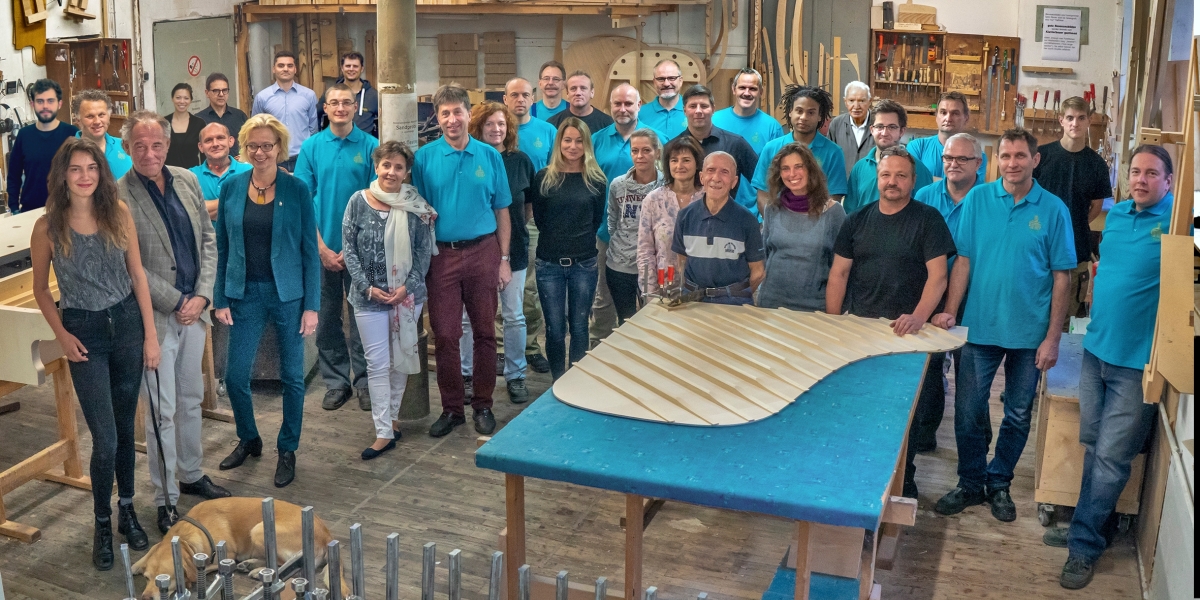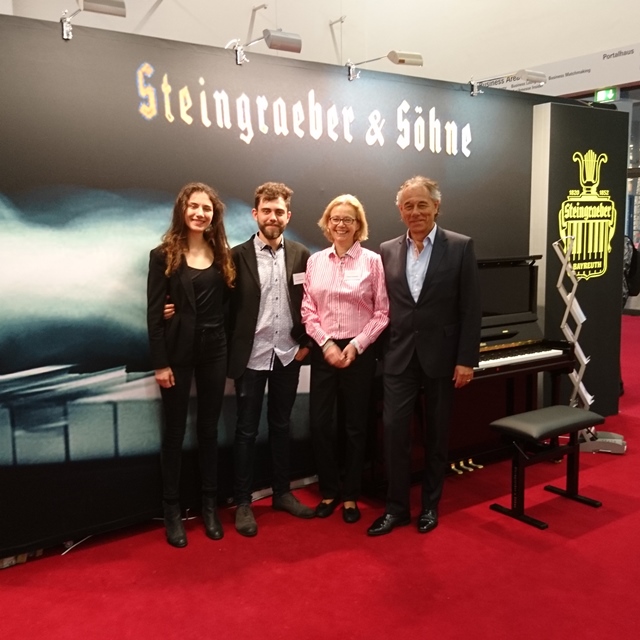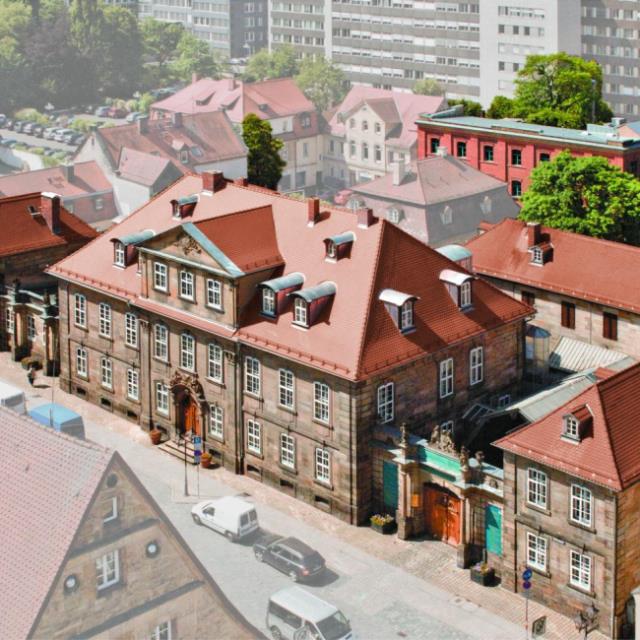The Art of Piano Making in Bayreuth since 1852
Steingraeber & Söhne have been making upright and grand pianos since 1852 in the Festival City of Bayreuth. Around 35 first-class craftsmen and women work daily in this family-run business.
These hand-crafted pianos are among the finest instruments produced by an elite group of manufacturers. Steingraeber pianos are played worldwide by an array of distinguished artists and in the most-renowned concert halls.
The story begins in the 1820’s with the first factory in Thuringia. Eduard Steingraeber (from the family’s second generation) moved his works to Bayreuth in 1852, where he produced his ‘Opus 1,’ a revolutionary masterpiece. Steingraeber pianos have regularly been awarded international prizes since 1867, and in 1906, world-famous designers began to fashion piano cabinets for Steingraeber. Udo Schmidt-Steingraeber, a sixth-generation family member, has been head of the firm since 1980, with the seventh generation already in the starting blocks.




















